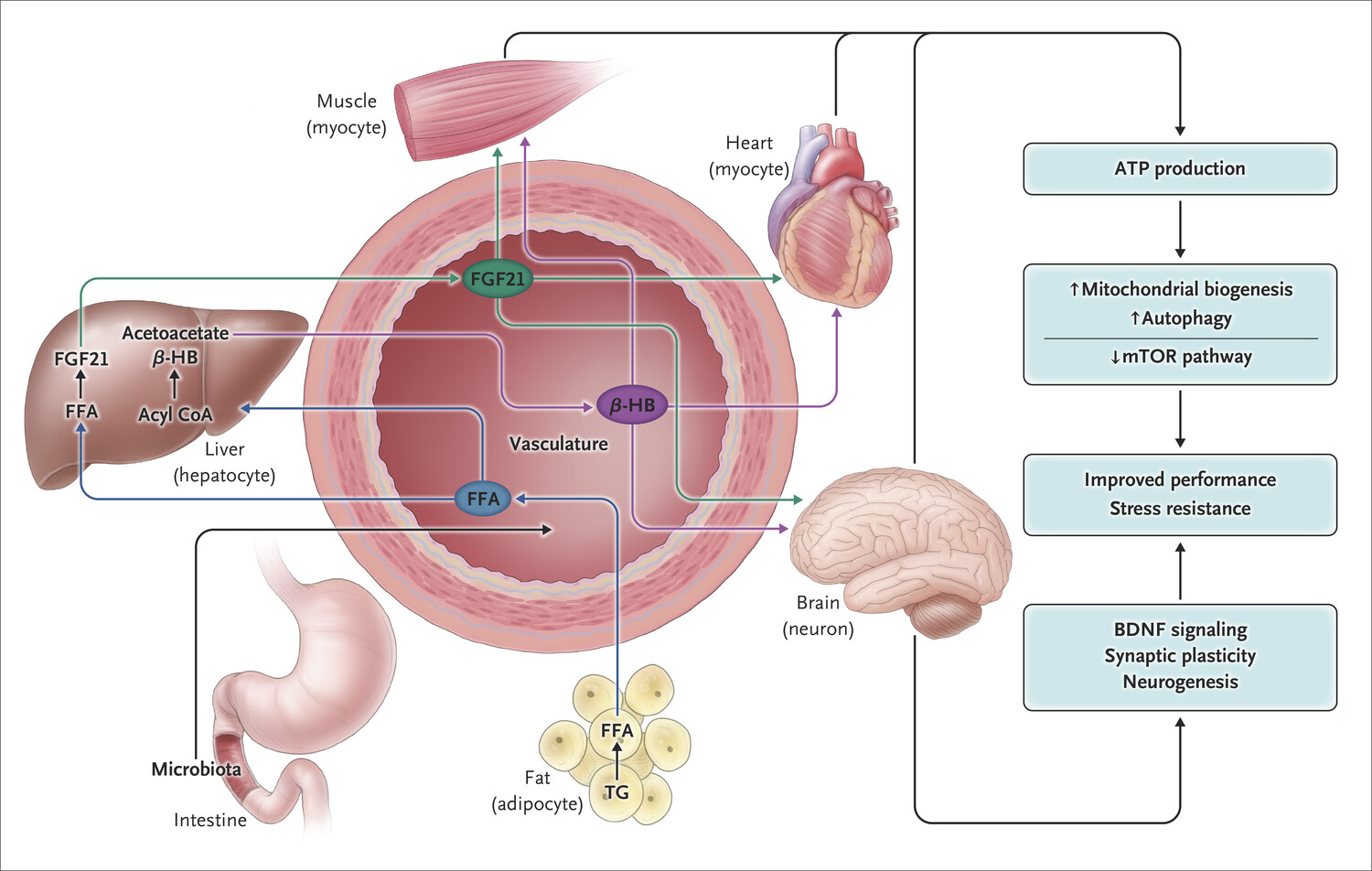
You don’t feel it at first. Just a delay. A pause in your usual rhythm. It doesn’t start with hunger, it starts with silence. The body watches. Waits. Hormones shift without asking. And something soft begins to change.
Time stretches between meals. Insulin pulls back. Glucose stops rushing. And still, there’s no alarm. Just stillness. Just space. Just the body trying something ancient, without asking permission.
The clock becomes more than time. It becomes instruction. And the body listens, curiously at first, then more confidently.
Cortisol doesn’t drop—it hovers
Fasting doesn’t quiet every system. Some stay loud. Cortisol doesn’t drop—it hovers. Especially in the early days. The body doesn’t fully trust the pause.
Stress hormones spike in the morning. They think you’re in danger. Missing breakfast sounds like threat. Not choice. The body’s learning. Slowly. And not always gently.
You wake with energy, but not peace. Rest feels light. Sleep gets fragmented. But over time, the alarms soften. Cortisol learns the pattern. And follows, mostly.
Ghrelin doesn’t care about the time on your watch
Hunger isn’t logical. It’s hormonal. Ghrelin rises because of routine. Not need. Ghrelin doesn’t care about the time on your watch. It cares about yesterday’s breakfast.
So when you skip a meal, it gets confused. It yells. But briefly. Then forgets. Hormones have short memories. Especially the ones tied to habit.
Soon, hunger shrinks. Fullness feels different. The body adjusts. Not by willpower, but by conversation. Between gut and brain. Between then and now.
Leptin lags behind, but eventually joins
Leptin watches from a distance. It controls fullness, but only after trust builds. Leptin lags behind, but eventually joins. It notices the pattern. Learns the rhythm.
And then, something shifts. Cravings fade. Not all. But some. Enough to feel new. Enough to keep going. That’s when fat storage changes. Slowly. Quietly.
Leptin starts signaling again. Not louder, just more often. The body feels heard. It doesn’t need to shout with food anymore. Just whisper, and respond.
Insulin softens its grip, one hour at a time
Each fast resets something small. Blood sugar dips more gently. Energy holds steadier. Insulin softens its grip, one hour at a time. That’s what makes the change feel natural.
The pancreas rests. Not fully, but more than before. It doesn’t rush to correct every bite. And your cells begin to listen again. They remember how to open without force.
It doesn’t happen in days. But it starts with one. Then two. Then a week of steadier mornings. Of energy that doesn’t collapse at noon.
Estrogen listens differently than testosterone
Not all hormones shift the same. Estrogen listens differently than testosterone. It prefers balance. Not extremes. And fasting walks a line between both.
In women, too much fasting stalls cycles. Ovulation pauses. The body thinks it’s protecting something. But it’s guessing. Trying. Responding to cues you don’t send directly.
In men, testosterone may rise. Or stabilize. Sometimes both. Sometimes neither. It depends on sleep, on stress, on muscle, on memory. And none of it follows one rule.
Progesterone waits for evidence, not promises
You can’t fake safety with fasting. The body needs proof. Progesterone waits for evidence, not promises. If it doesn’t feel safe, it won’t rise.
That means luteal phases get shorter. PMS symptoms grow louder. Sleep becomes lighter. All signs the body isn’t convinced. Yet.
But when the fasts are gentle—when food returns on time—things shift. Progesterone learns to rise again. Not in rebellion. But in rhythm.
Thyroid hormones slow when fasting feels like a threat
The thyroid hates extremes. It prefers predictability. Thyroid hormones slow when fasting feels like a threat. Especially T3, which adjusts metabolism moment to moment.
When food gets scarce, the thyroid adapts. It pulls back. It saves energy. You feel colder. More tired. And it’s not psychological. It’s hormonal logic.
But when fasts stay consistent, not severe, it adapts back. T4 converts again. TSH stays level. And the metabolism finds its middle ground.
Melatonin waits for darkness, but stress delays its signal
Sleep doesn’t just happen. It builds. Melatonin waits for darkness, but stress delays its signal. And fasting, in the wrong rhythm, acts like stress.
Evening fasts help some. For others, they delay rest. It depends on cortisol. On light. On screens. On noise. And on the last bite of the day.
When timed right, fasting improves sleep. When rushed, it fractures it. Melatonin isn’t stubborn, but it’s cautious. It needs more than routine. It needs quiet.
You don’t need to feel hunger to feel emptiness
Some fasts feel fine. Others feel heavy. You don’t need to feel hunger to feel emptiness. That’s hormonal too. Not dramatic. Just there.
Loneliness grows in long fasts. Especially if the mind stays busy. Ghrelin sometimes triggers emotion. Not appetite. Sadness hides in hunger’s rhythm.
That’s why some days are harder. Not because of food. But because of feeling. And fasting brings it closer. Strips distractions. Leaves you with silence.
